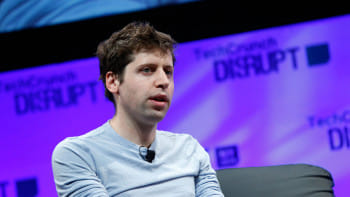OpenAI investors are now considering suing the board

A faction of investors in OpenAI, the parent company of the renowned ChatGPT, are now reportedly considering legal steps against the company's board. This development comes after the board's decision to remove CEO Sam Altman, a choice that has led to upheaval within the organisation.
The crux of the investors' concerns lies in the potential financial implications of the board's decision. The ousting of Altman, coupled with the threat of mass resignations by OpenAI employees, has raised fears of significant financial losses. These investors have reportedly invested substantial sums in OpenAI, viewing the company as a critical asset in their portfolios, especially given its prominence in the burgeoning generative AI sector.
Microsoft holds a significant stake in OpenAI, owning 49% of the for-profit operating company. The remaining ownership is split between other investors and employees (49%), with a small fraction (2%) retained by OpenAI's nonprofit parent.
The dismissal of Altman last Friday was due to a "breakdown of communications". This decision has incited strong reactions within the company, with the majority of OpenAI's workforce, numbering over 500, threatening resignation unless the board is replaced.
A crucial aspect of this unfolding scenario is the unique structure of OpenAI. Initially established as a nonprofit, OpenAI later incorporated a for-profit subsidiary in 2019 to facilitate capital raising. This structure has been designed to ensure that the nonprofit retains control over the company's core mission and governance. This arrangement, while offering certain advantages, has also resulted in a scenario where employees potentially wield more influence over board decisions than the venture capitalists who have financially backed the company.
Experts point out that while nonprofit boards are legally bound to their organisations, the obligations – such as the duty of care and avoidance of self-dealing – can vary significantly. In the case of OpenAI, the use of a limited liability company structure for its operating arm could potentially shield the nonprofit's directors from direct investor influence.
As of now, it remains unclear whether the concerned investors will proceed with legal action against OpenAI's board. This situation underscores the complexities and potential conflicts inherent in hybrid organisational structures blending nonprofit and for-profit elements, especially in high-stakes, rapidly evolving sectors like artificial intelligence.

 For all latest news, follow The Daily Star's Google News channel.
For all latest news, follow The Daily Star's Google News channel. 











Comments